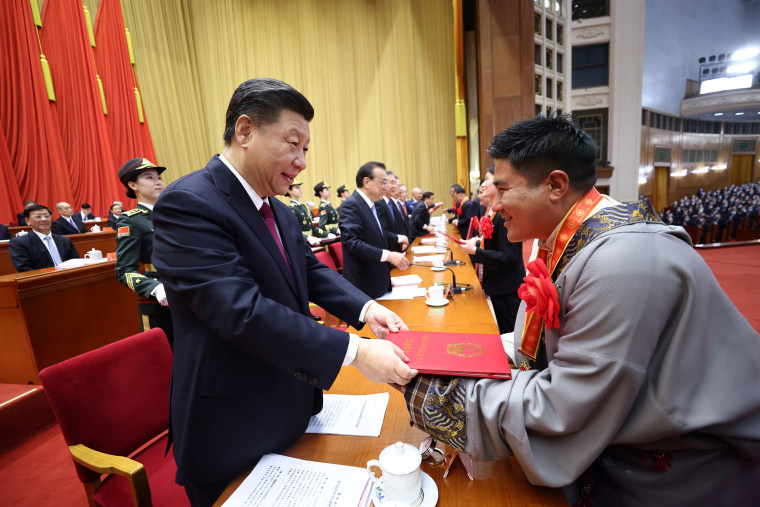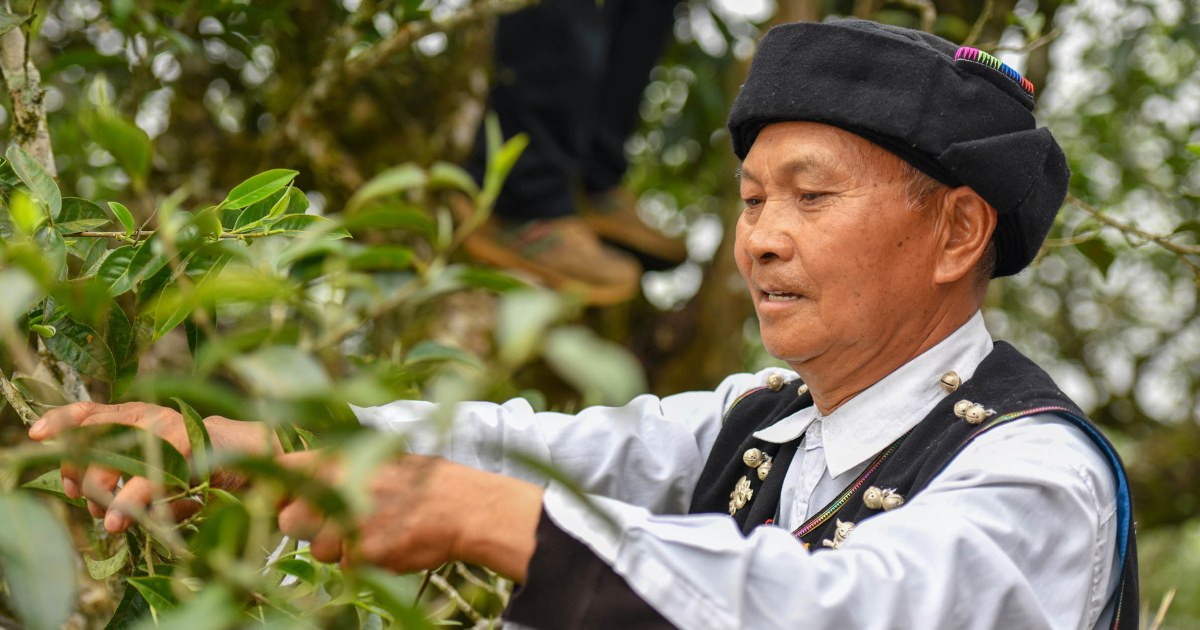Malipo, China – the rural villages in Malipo are a world far from shiny Chinese cities such as Beijing and Shanghai, which have been reached through narrow roads that sometimes hire a dangerous way of deep valleys. School students eat simple breakfast meals during squatting on the sidewalks, and even a local official who complained that remote mountain villages lack the latest 5G internet connection.
But Chinese officials refer to the general progress in this thick -western border border region in southwestern China as a reason for their “confidence” in the country’s development model, and its ability to overcome any trade war with the United States.
“We have complete confidence and the ability to overcome all difficulties,” Foreign Minister Hua Chuning said last week during a government sponsored to Malibu County in Yunnan Province.
“As for what the United States is doing, we do not really want any kind of war, but if we have to face reality, we will not be afraid at all.” “Ordinary people already feel suffering from the war of tariffs, so I really hope [U.S.] The administration will return to normal. “
Hua was speaking before the United States, and China agreed to reduce the customs tariffs on each other’s imports, while Beijing said the effectiveness of its resistance against President Donald Trump’s “bullying” tariff.
She and other officials said that Malibu, with 233,000 people spread between several towns and hundreds of “village groups”, is a model for poverty reduction in China in recent decades. The per capita income in Malibu was $ 2,300 last year, compared to about $ 69 annually in 1992.
But Beijing’s declared confidence ignores the real anxiety about the work that still has to be done, as well as the potential impact of the American definitions, as China is struggling with structural imbalances and slow economic growth.
The situation extends the gap in urban areas in urban areas, and it is clear to the residents of Malipo.
“The economy is not good,” said Leo Haksin, a seller who sells manufactured fruits and other products from Vietnam and Thailand in the market.
“Look at many stores around it, do not buy people,” he said.
Ending “absolute poverty”-the goal that Chinese President Xi Jinping said was officially achieved at the end of 2020-is necessary to reduce income inequality in the second largest economy in the world as he seeks to catch up with the United States.
More than 450 million people from China, who number 1.4 billion people in rural areas, are considered to have to spend more on consumer products, as it is very important as China is trying to reduce its economic dependence on exports threatened with tariffs.
China also described the “Poverty Reducing” program as a model for developing countries in the global south, which faces similar challenges.
Liu Gozing, 40, who is a senior Chinese diplomat, who is also the deputy mayor of Malibu, in the framework of a program participating in the ministries of the central government, governorates, and institutions that put it in the province, as part of a program participating in the ministries of the central government, provinces and institutions that put it in the province within the framework of a program that participates in the ministries of the central government, governorates and institutions that put it in the province within the framework of a program that participates in the government ministries. Central, governorates and institutions with poor areas, “The Malipo experience in mitigating poverty is of global importance.”
Hua said the strength of the China regime is its ability to “focus resources” on the urgent needs of people. Beijing has been believed to have spent hundreds of billions of dollars to reduce poverty since 2015.
China’s approach to reducing inequality brings together “forced control from top to bottom” with high social spending in an attempt “to highlight the failures in the capitalism of the liberal free market”, Rana Miter, historian and political scientist at Harvard Kennedy School, in A, in A, wrote, in A, in A, A new foreign affairs article.
Miter told NBC News that programs like those in Malipo are “an increasingly important part of China’s messages, and they have development solutions for rural and urban areas.”
He said: “This is possible that this is especially attractive in many global southern countries that still have large agricultural sectors and may look forward to Chinese examples to find ways to modernize their rural region.”

Jasson Choi, director of His Highness Group, a group based in Hong Kong, said companies that invest in Malibu are still driven by “the invisible hand of the market forces.”
He said that improving infrastructure and government support were important factors in his family’s investment company’s decision about $ 7 million in the modern tea factory in Malibu, as well as the capabilities of the brand associated with old tea trees in Malipo.
“We have created direct job opportunities for more than a hundred people, and about 10,000 people in the direction of the river,” said Choi, 25.
In the nearby gene, another boycott targeting poverty, a colorful company, is a company based in the Chinese Technology Center for Genthen, specialized in graphics cards used in video games, invested about $ 15 million in a smart agricultural company and other projects, creating production jobs for more than 200 people, and for polytheism many farms in the contract.
Corn products are sold in China at SAM’s Club’s Walmart, 7-Eleven, and on the JD.com e-commerce platform, as well as exporting them to Southeast Asia and other places.
When asked about the impact of the American -Chinese trade war, the mayor of Malipo Xiao Changju referred to the horizons of rapid development to trade the border with Vietnam and other countries of Southeast Asia.
He also repeated a line that Chinese officials frequently use, saying: “We do not like to fight a trade war, but we are not afraid of one of them.”


